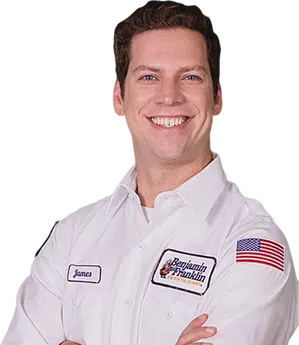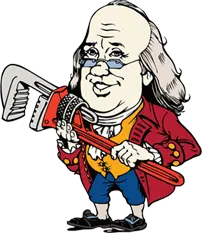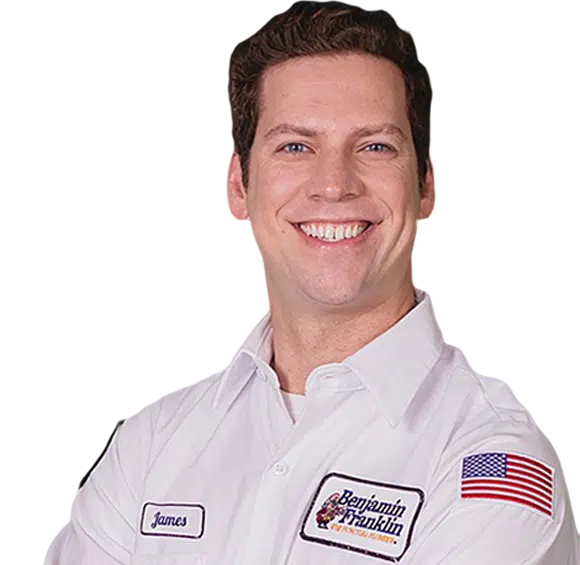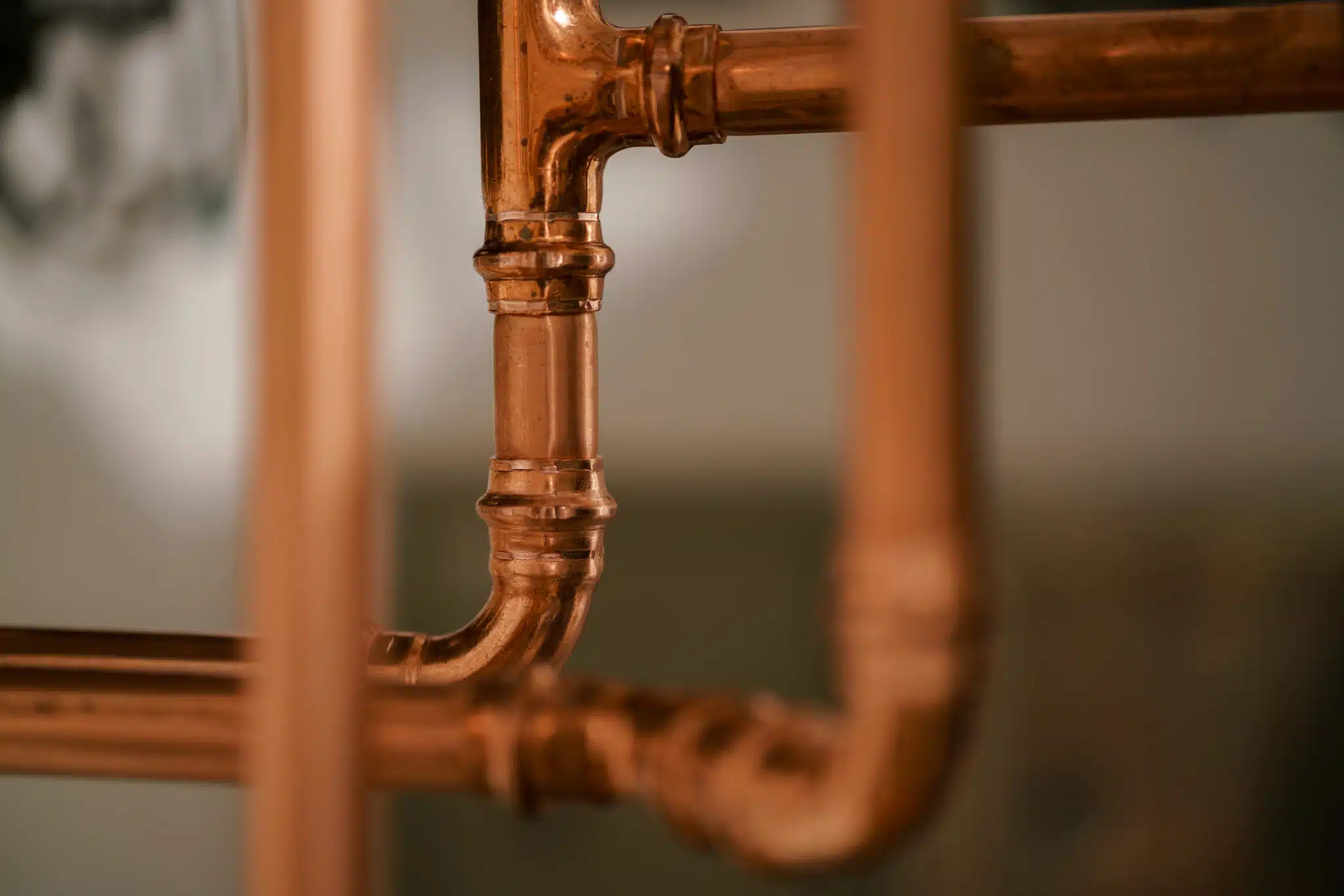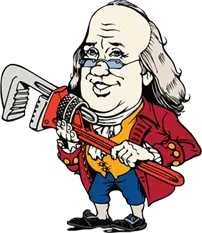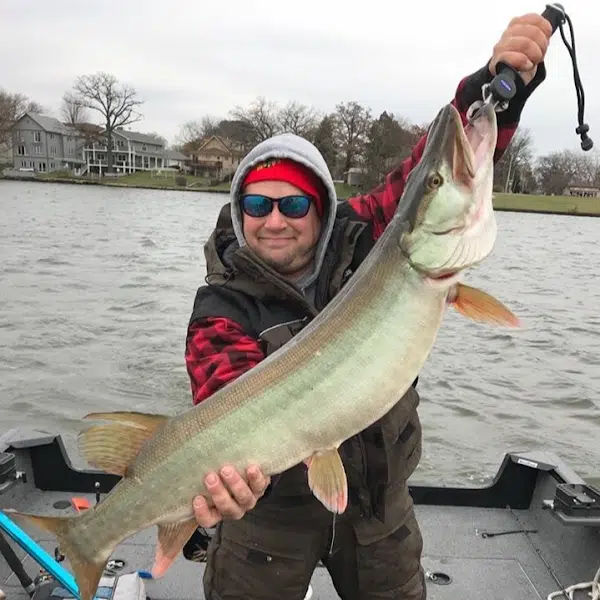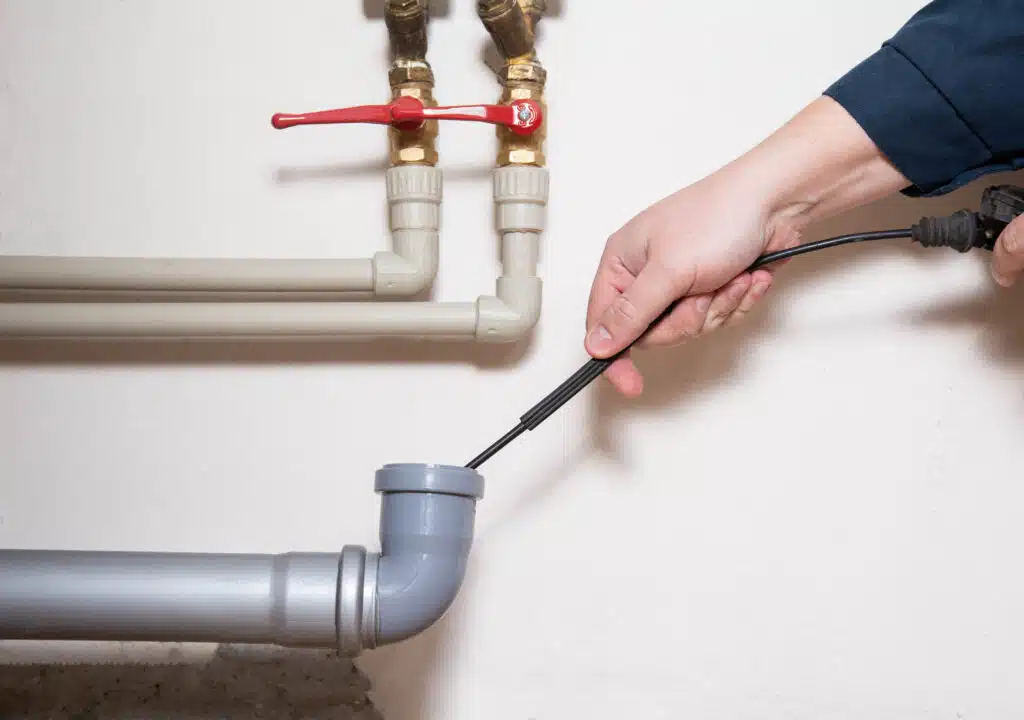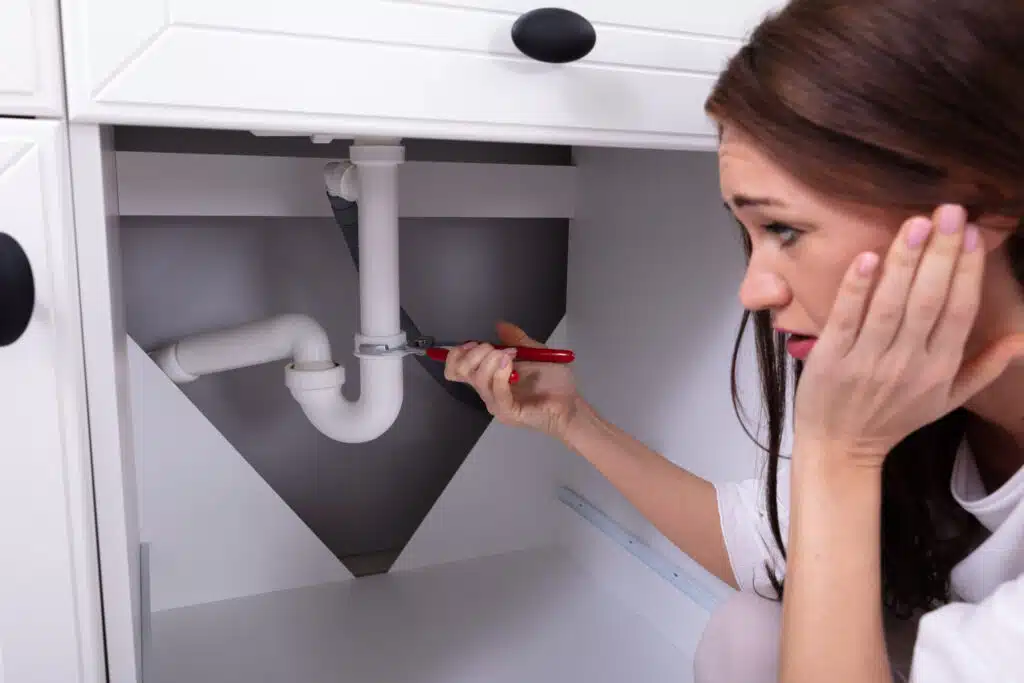Plumbing in Lancaster has come a long way. We started with clay and copper pipes and now use materials like PVC and newer types of copper. Today, to fix leaks and clogs, we need to know both the old ways and the new ones to keep things running smoothly and sustainably.
The Evolution of Lancaster’s Plumbing Systems
Ever thought about how the plumbing in Lancaster has changed to tackle today’s challenges and innovations?
Plumbing in Lancaster has come a long way. The history of plumbing first started with the Mesopotamians who introduced clay sewer pipes around 4000 BCE. By 2700 BCE, the Indus Valley civilization had standardized earthen pipes with asphalt flanges. Around 2400 BCE, Egyptians made big strides by connecting places like the Pyramid of Sahure with copper waste pipes.
As Lancaster grew, so did its waterworks systems, evolving to meet the needs of a modern city. The early settlers used simple plumbing and often struggled with basic water supply and waste disposal. But as technology advanced, waterworks systems got better.
Metal pipes, first seen in Egypt, became common. Later, galvanized steel and PVC pipes were used. Today, Lancaster’s waterworks uses the latest technology and focuses on being efficient and eco-friendly. There are smart water meters and materials that save water and energy.
Benjamin Franklin Plumbing of Lancaster, Reading, PA, keeps up with these trends to provide reliable and modern plumbing for local homes and businesses. Balancing history and new tech is key to meeting Lancaster’s plumbing needs.
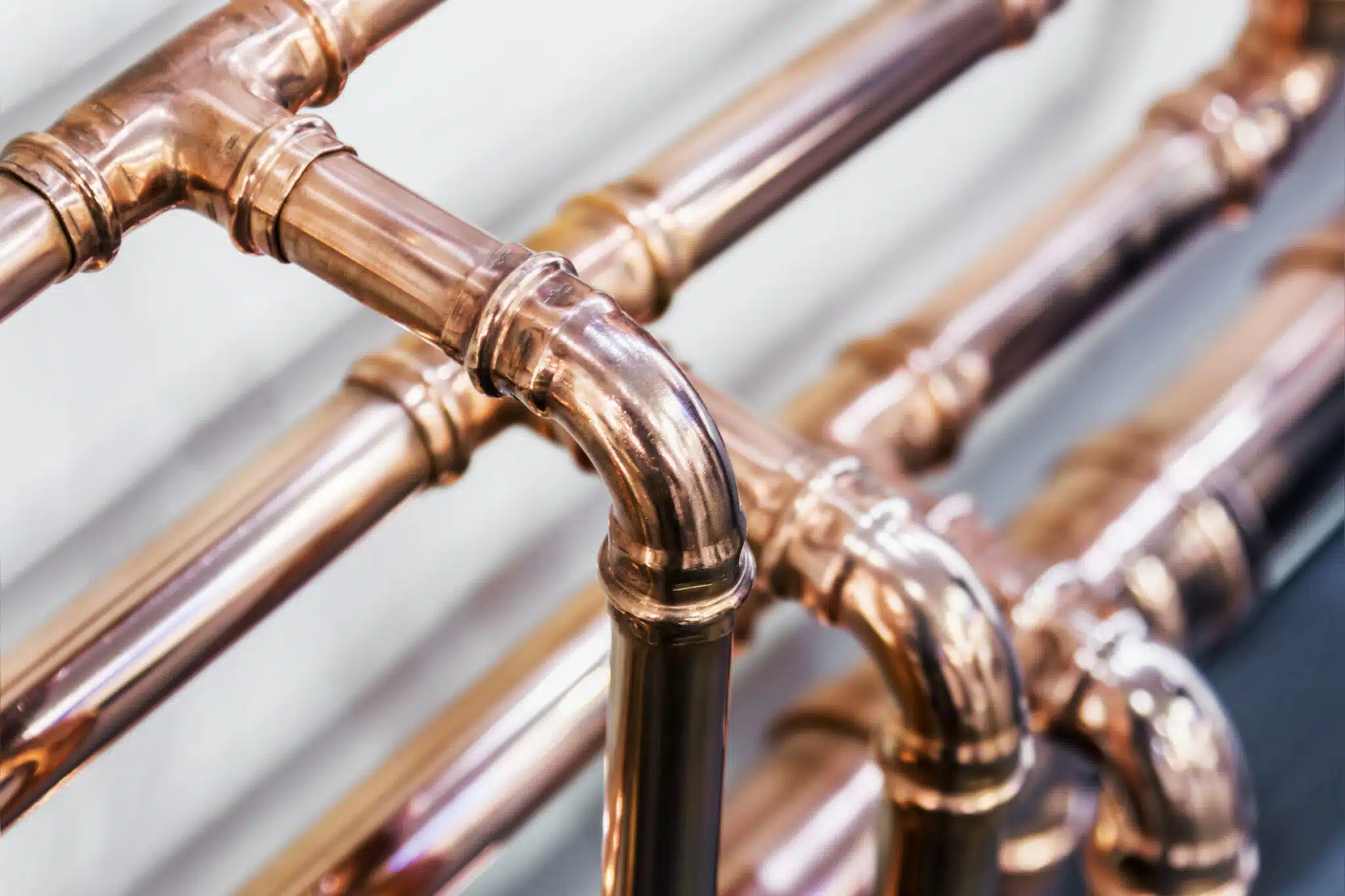
Key Parts of Modern Plumbing Systems
Do you know why water pipes, drain systems, and vents are so important for our comfort? These essential parts make up modern waterworks in Lancaster and beyond, giving us the ease we often overlook. Water Pipes bring fresh water to every tap and appliance in your home. These pipes, usually made of copper or PVC, are known for their strength and efficiency.
They make sure water flows smoothly throughout your house, helping with cleaning, cooking, and bathing. Drain Systems are the unsung heroes that remove wastewater from your home. Made from materials like cast iron or ABS, these pipes make sure waste leaves your space without any problems, avoiding backups and keeping things clean. Vents maintain air pressure in the waterworks system, stopping bad smells from entering your home.
These vents, often on your roof, let sewage gases escape, keeping your environment safe and odor-free. In Reading, PA, you can rely on Benjamin Franklin Plumbing to handle these key parts with skill. Their expert services keep your waterworks system running smoothly, protecting your home and health.
Types of Pipes and Their Uses
Wondering what kind of pipes are best for your waterworks in Reading, PA? Knowing the types of pipes and what they’re used for can help you decide.
Water Pipes
Copper pipes are a popular choice for water lines because they last long and are reliable. They can handle high pressure and don’t rust easily, making them great for homes and businesses. Another option is PEX pipes. These are flexible, easy to install, and don’t get clogged by scale or chlorine. PEX pipes are good for old houses and are often color-coded for hot and cold water systems.
Sewer Pipes
For sewer lines, PVC pipes and cast iron pipes are common. PVC is light, easy to install, and stands up to household chemicals. Cast iron pipes are very strong and cut down on noise, but they’re heavier.
ABS pipes are another choice. They’re like PVC but better for underground sewers because they are strong and tough. Knowing what each type of pipe is best for can help your plumbing work well and last.
For expert help and installation, think about contacting Benjamin Franklin Plumbing in Reading, PA.
Common Materials Used in Plumbing
What materials come to mind when you think of plumbing? For the folks at Benjamin Franklin Plumbing of Lancaster, three main materials often stand out: Copper, PVC, and Cast Iron. Copper has been a top choice in waterworks for a long time. It’s tough and can handle high heat, making it good for both hot and cold water lines. It’s also naturally against rust, ensuring it lasts long. It can be a bit pricey, but many find it worth the cost.
PVC (Polyvinyl Chloride) pipes are another hit, especially in homes. They are cheap and easy to work with because they are light. PVC is mostly used for drain, waste, and vent (DWV) pipes. Unlike metal, it doesn’t rust, making it a good pick for many uses. Just note, that PVC isn’t good for high-pressure hot water lines but works great for waste systems.
Lastly, Cast Iron pipes are super tough and quiet. These pipes are mainly used for main drain lines and are known for lasting a long time. Cast iron’s thickness dampens the sound of water, making homes quieter. However, installing them can be hard work because of their weight. Picking the right material is key. Knowing these materials can help you chat better with your local plumbing experts in Reading, PA, at Benjamin Franklin Plumbing of Lancaster.
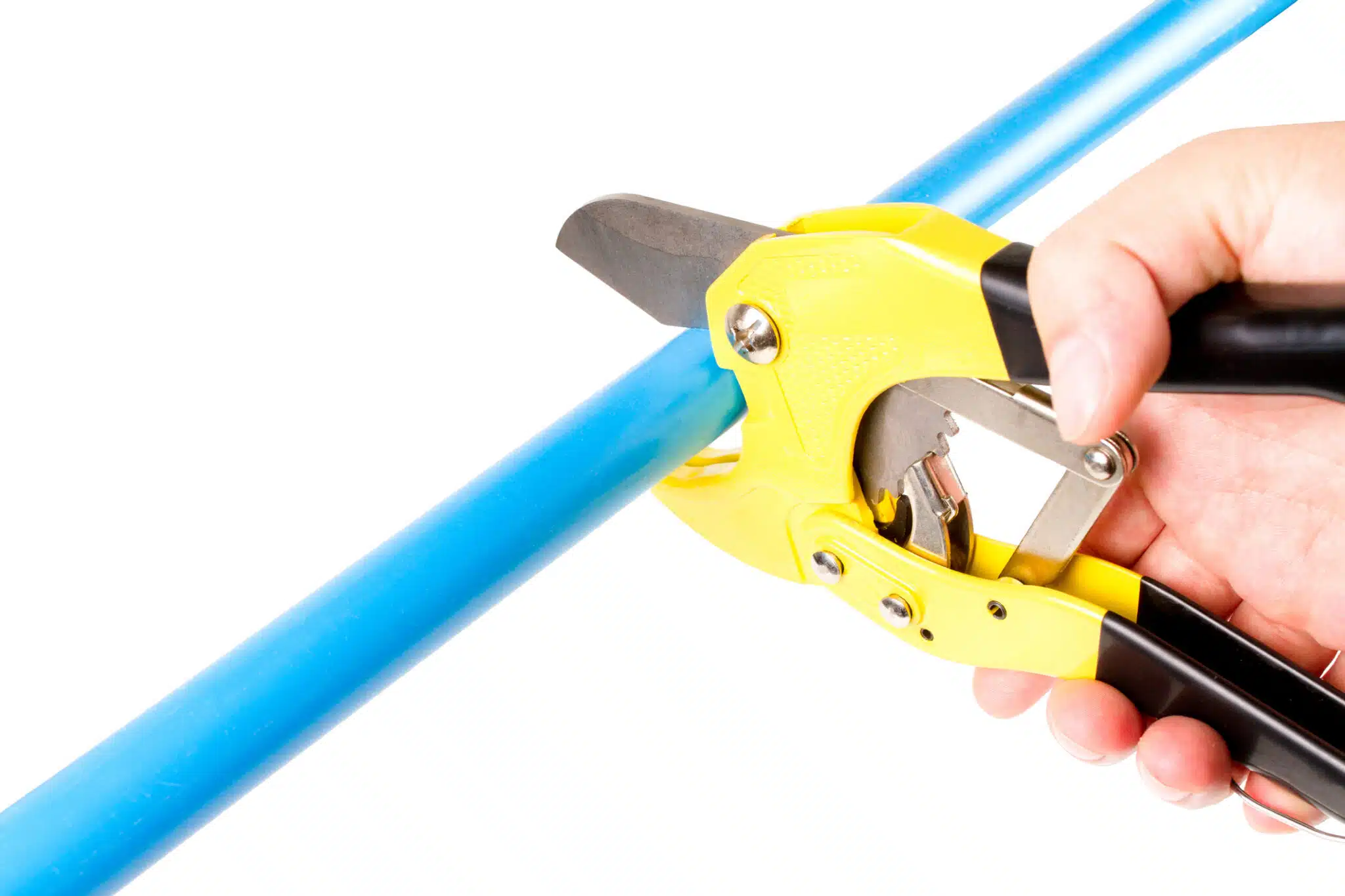
Essential Plumbing Equipment and Tools
Plumbing Pipe Wrenches
Tried fixing a pipe leak without the right tools? Pipe wrenches are a must. They grip and turn pipes with precision. They come in many sizes, so you’ll have the right one for any task, from small indoor fixes to tough outdoor jobs.
Plungers
Every home in Reading, PA needs a trusty plunger. This simple tool can save the day by quickly clearing clogs in sinks, toilets, and showers. It’s your first line of defense against minor blockages, often keeping you from needing chemical drain cleaners.
Pipe Cutters
Cutting pipes is easy with a good pipe cutter. These tools make clean, straight cuts on materials like copper, PVC, and steel. For any DIY enthusiast, a pipe cutter means precise repairs and installations, reducing the risk of leaks.
Common Plumbing Problems in Lancaster
Ever noticed a pesky leaky faucet in your home? Benjamin Franklin Plumbing of Lancaster knows it’s not just annoying but also wasteful. A leaky faucet can spike your water bill and lead to bigger problems if left unchecked.
Another common issue we see is clogged drains. These blockages can be caused by grease buildup or foreign objects in your pipes. Ignoring these clogs can lead to more serious drainage problems that need immediate attention.
Running toilets are equally troublesome. A toilet that keeps running wastes a lot of water and often points to issues like faulty flappers or fill valves. These might seem small but can turn into bigger, costlier repairs if not fixed quickly.
For homeowners dealing with these waterworks issues in Reading, PA, trust is key. Benjamin Franklin Plumbing of Lancaster offers reliable and fast solutions to keep your home running smoothly. Don’t let these minor problems become major headaches.
From quick fixes to full plumbing services, we’re here to help. Need help with leaky faucets, clogged drains, or running toilets? Call us today and let our Plumbing experts handle it for you!
Plumbing Rules in Lancaster
Do you know the key plumbing rules that keep your plumbing system safe and working well? In Lancaster, following local rules is a must. These rules make sure every installation and repair job meets safety and environmental standards. When doing any plumbing work in Lancaster, you need to know the local codes and standards. These rules cover everything from how to install pipes right to which materials can be used.
For example, some old materials are banned now because they are not safe, making new buildings safer and more efficient. Also, most big waterworks jobs need a permit. Permit rules make sure any changes or new installations are checked by local authorities.
This protects homeowners from dangers.
For example, jobs like changing sewer lines or adding new water heaters need proper paperwork. These permits are not just red tape but essential steps to keep high standards and avoid accidents or rule-breaking. Getting through these codes and permits can seem tough, but experts like Benjamin Franklin Plumbing of Lancaster, PA can help.
They make sure everything meets the code, giving you peace of mind and great service. So, if you need services in Reading, PA, remember to rely on trusted professionals to navigate the local regulations.
Environmental Considerations in Plumbing
Ever thought about how plumbing affects the environment? Saving water and using eco-friendly materials are key to sustainable living in Lancaster. Traditional plumbing wastes a lot of water, but modern solutions like low-flow fixtures and dual-flush toilets cut down on usage.
Water Conservation
Water conservation starts with small changes. Installing aerators on faucets and using water-efficient appliances can greatly reduce water use. These steps help ease the strain on local water resources in Reading, PA. Smart irrigation systems and rainwater harvesting devices are also great for cutting your environmental footprint.
Eco-Friendly Materials
Using eco-friendly materials in plumbing is another way to be sustainable. Materials like PEX and recycled PVC are durable and produce fewer toxins during making. Copper pipes, which resist bacteria and are fully recyclable, also make plumbing greener. Incorporating these practices makes plumbing not just efficient but also kind to the planet. Hiring a professional service like Benjamin Franklin Plumbing of Lancaster, PA, ensures you get the latest eco-friendly practices suited to your home. Remember, maintaining a sustainable waterworks system is a team effort; even small changes make a big difference.
Benefits of Hiring Professional Plumbers
Thinking about fixing your waterworks yourself in Reading, PA? Here’s why it’s better to hire a pro, like those at Benjamin Franklin Plumbing of Lancaster, PA. First, expertise and reliability matter. Pro plumbers train hard and get certified to handle any plumbing issue. From big installs to quick fixes, their know-how prevents future issues too.
Second, advanced diagnostics. Pros have top-notch tools to find and fix problems fast. This saves you time and hassle. Plus, they follow all local rules and standards, making sure the work is safe and compliant. Most also offer warranties for peace of mind.
So, hiring a pro plumber in Reading, PA gives you expertise, advanced diagnostics, and peace of mind—keeping your home’s plumbing in tip-top shape.
DIY Plumbing Tips for Homeowners
Thinking about fixing some basic waterworks issues yourself? Let’s start with a simple one—how often have you dealt with a leaky faucet? It’s a common problem and easy to fix. Just make sure to turn off the water supply first.
Often, replacing worn-out washers or O-rings in the faucet can stop that drip. For clogged drains, a plunger is your best bet. Surprisingly, dish soap and hot water can clear a stubborn clog. Pour dish soap down the clogged drain, then add boiling water. The mix helps grease slip through the pipe.
If that doesn’t work, use a plumber’s snake or a drain auger for deeper clogs. Another issue is the running toilet, often due to a bad flapper. Check the tank to make sure the chain isn’t tangled and the flapper seals properly. If worn, flappers are cheap and easy to replace.
But some problems need a pro.
If you notice persistent issues, low water pressure, or strange noises, it’s time to contact Benjamin Franklin Plumbing of Lancaster, PA. As locals, they know the area’s waterworks challenges and offer reliable fixes. If you’re in Reading, PA, seeking professional help is also a wise choice.
DIY fixes can handle many minor issues, but always know when to call in the pros for tougher plumbing problems.
The Future of Plumbing in Lancaster
Is your home’s plumbing ready for the future? Lancaster’s plumbing industry is set for big changes with new tech and sustainability trends. Smart systems are now common, letting you monitor and detect leaks in real-time. You can get an alert on your phone about a leak while you’re out, stopping problems before they get big.
Greywater recycling systems are also becoming popular. They reuse water from sinks and showers to flush toilets and water plants, cutting down on water use. Plus, new materials like PEX and stainless steel are more durable and less likely to leak. The move to net-zero homes increases the demand for high-efficiency fixtures like low-flow toilets and faucets, which use less water without losing performance.
Local experts, including Benjamin Franklin Plumbing of Reading, PA, are combining new tech with eco-friendly practices.
Stay up-to-date with these trends to make sure your plumbing is efficient, green, and ready for the future. Trust the pros to guide you through these innovations and keep your home’s plumbing in top shape for years.
FAQs
-
What are the most common plumbing problems homeowners face?
Leaky faucets, clogged drains, and running toilets are the most common issues. They can be annoying and, if ignored, can cause serious damage to your plumbing.
-
How can I prevent clogged drains?
To prevent clogs, don’t flush items like wet wipes or pour grease down the sink. Use a drain screen to catch debris and clean your drain regularly with a mild cleaner to maintain good plumbing health.
-
Is it safe to use chemical drain cleaners?
Chemical drain cleaners can clear minor clogs but can damage pipes if overused. For persistent problems, it’s best to call a pro like Benjamin Franklin Plumbing of Reading, PA.
-
Why is my water bill unusually high?
A high water bill may mean you have hidden leaks, running toilets, or old appliances. Hiring a pro to check your plumbing can save you money over time.
-
When should I call a professional plumber?
Call a pro plumber when you have persistent issues, suspect hidden leaks, or can’t fix a problem on your own. It’s better to be safe than sorry with your plumbing!

